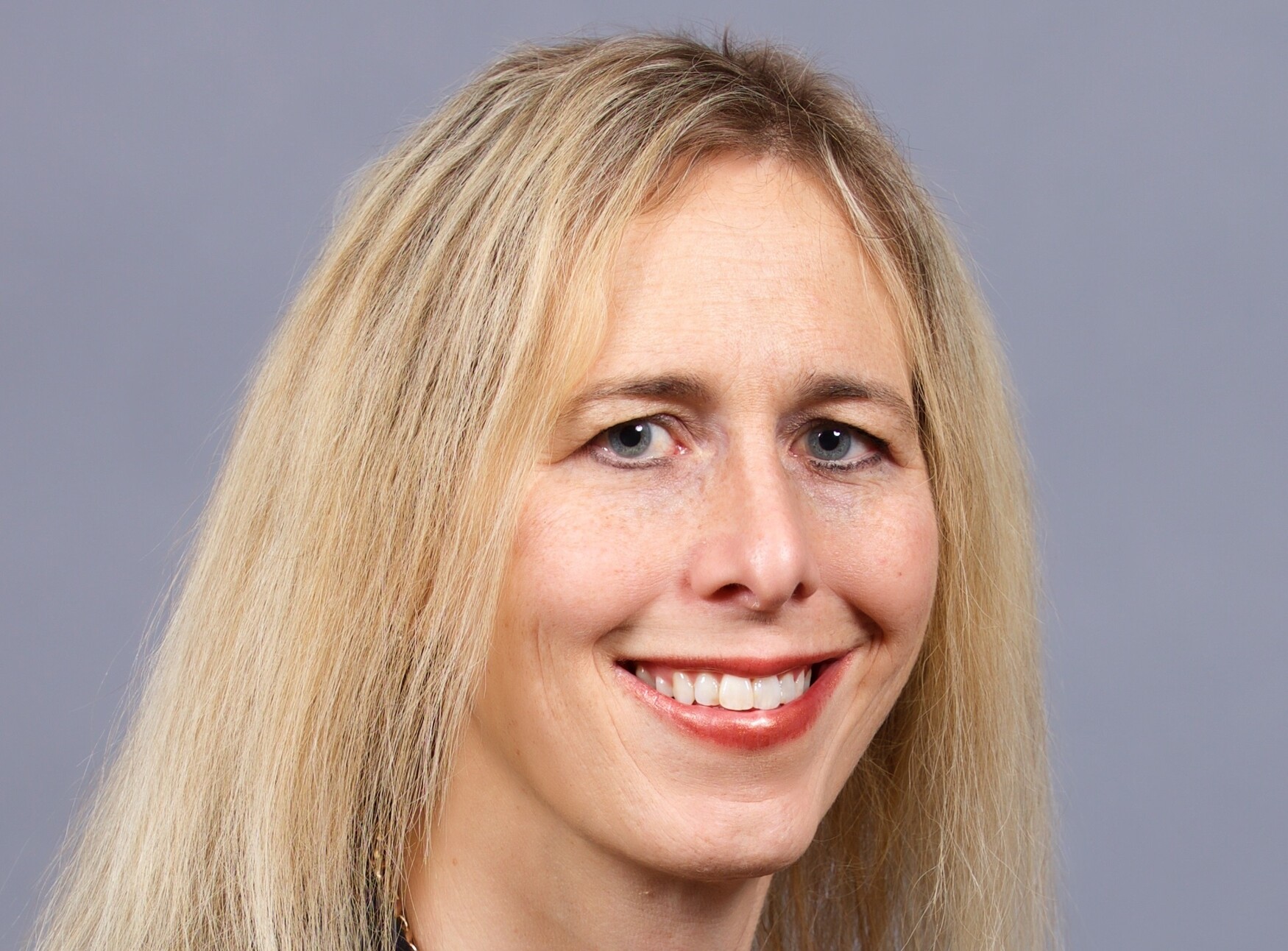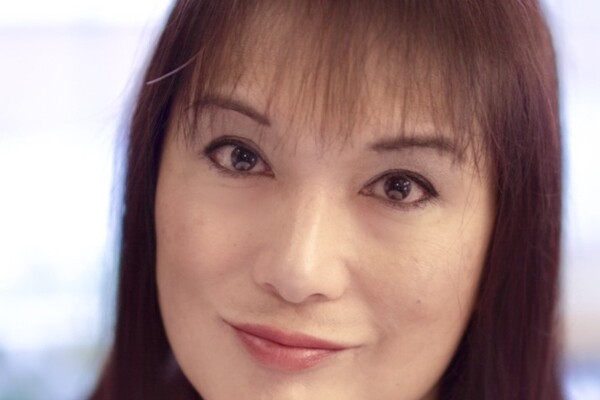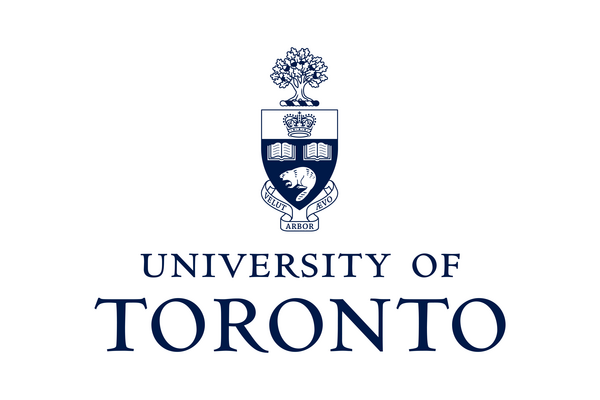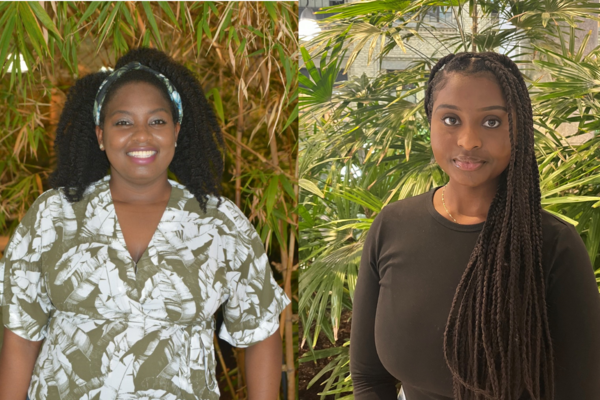Battle for Freedom: Laura Targownik on Transgender Day of Remembrance

As events for this year’s Transgender Awareness Week come to a close, we turn our attention towards Transgender Day of Remembrance, which is internationally recognized on Sunday, November 20. The day was first observed to honour the life of Rita Hester, a Black trans woman who was killed in 1998. More than twenty years later, this time is a chance for all to honour the contributions of trans and non-binary people who have suffered violence in fighting for rights or simply for existing.
Laura Targownik (she/her) is an associate professor and the department of medicine division director of gastroenterology and hepatology at the Temerty Faculty of Medicine, as well as a clinician-scientist at Sinai Health. She recently spoke with writer Jerusha Retnakanthan about trans justice.
How do you connect with Transgender Day of Remembrance?
I can only speak from my own experiences as one member of the transgender community, and as someone who is not a gender scholar or an activist. And, as a white non-queer-presenting woman, I have not faced the same challenges as many trans people from historically disadvantaged communities, or those who face the regular disenfranchisement that comes with a lack of access to power.
I understand the primary focus of this day is on those who have died, often violently, as a result of bigotry toward trans and gender non-conforming people. Unlike other days of remembrance for past wars or tragedies, this day is an acknowledgment that the battle for freedom from anti-trans violence is ongoing.
This is a day to honour the countless trans individuals who died, without ever having been able to live in the world as their true selves. Many people die by suicide or suffer deaths of despair, unwilling or justifiably fearful to face the daily depredations of moving through the world as a visible trans person. While the world is somewhat more welcoming to trans and other gender variant people, there are still significant barriers to transitioning. I consider myself to be quite fortunate that I live at a time in history, in a part of the world, where I had some latitude to explore my identity and take tangible steps towards moving through the world as a woman.
Can you share more about those supports and your experience back then?
I began my social transition in 2001 at the age of 28. I had been experiencing severe dysphoria since childhood, but being part of a tight cultural community in Winnipeg, I did not feel confident in expressing my gender or exploring my feelings. I was fortunate to be accepted into a fellowship at UCLA, and recognized that if I was going to figure out whether transitioning made sense for me, there was not going to be a better time or place.
In the early 2000s, there was much less trans-visibility, and representations in the public space tended to be sensational or prurient. I had never met another trans person in real life. I was admittedly quite sheltered, having had the privilege of growing up under comfortable economic conditions in a close and loving family.
I finally worked up the courage to reach out to the UCLA Trans Support Group, and for the first time saw other academics who were in the process of transitioning or who had transitioned. I felt a sense of myself reflected back in their experiences, and saw transition as a realistic possibility. This group became my support network. They guided me through some professional setbacks and lost opportunities, gave me pointers on my evolving presentation, and gave me comfort through the separation of my marriage and coming out to my family. They were integral in giving me space to figure out who I was.
I recognize that having these supports was a consequence of significant privilege. I had the economic wherewithal to access medical care, psychological support, and other resources to make changes to my physical presentation that was comforting to my cis colleagues and society. I also was lucky to have a supporting family, who despite their initial reservations, have been in my corner throughout. Thanks to this good fortune, I’ve been able to avoid many of the indignities and threats to personal safety that trans people who lack community supports and economic security often face.
A recent article on transgender health in medical education by some of your colleagues in Toronto outlines five recommendations for reducing inequities. Which resonate most with you?
Coming from a perspective of care delivery and subspeciality education, representation is of particular importance. We should be trying to create a health-care workforce that reflects the communities we serve. It doesn’t mean there has to be an exact proportional match, but we want to welcome powerful voices from historically disadvantaged communities into the community of health care providers. Given the barriers to inclusion faced by trans individuals, universities like U of T must be responsible for using their power to lower barriers to entry and to encourage their participation.
Thankfully, trans people have made significant progress in their fight for acceptance and inclusion in medicine in many parts of the world. When I transitioned, I didn’t know of any other trans health-care providers. In 2022, we have a trans physician who is the assistant secretary for health for the U.S. Department of Health and Human Services. There is now a vibrant online community of trans physicians and other health care providers, many of whom who specialize in the delivery of gender affirming care.
Having visible trans people in health care acts as a beacon to other gender-diverse individuals that health care is an inclusive field. It also helps to assure trans and gender diverse people that they will receive care that is respectful and affirming of their identities. We are seeing many more clinicians who are public allies, and educational institutions are taking an active role in integrating trans affirming content into curriculum. It means a lot to transgender people when they see their cisgender friends and colleagues as being proud allies in support of trans inclusion and elevation; that trans and gender diverse people are part of our community, and they who deserve to be honoured, treasured, and protected.
How else can Temerty Medicine and community members support the health and inclusion of transgender and gender-diverse people?
I recognize that U of T models itself as a progressive institution, and they have initiatives that do exemplify this. I’m part of the Diversity Mentorship Program, and initiatives that elevate trans stories and affirm the contributions of gender-diverse individuals is a significant positive change. Especially compared to the lack of resources I had access to as a trainee in early 2000s, and the lack of awareness of my colleagues.
I am concerned that there will be some attrition of trans acceptance in medicine in the years to come. Politicians, especially in the U.S., have identified the demonization of trans people and support for trans people as a wedge issue. They have been passing legislation restricting access to trans-affirming care and potentially criminalizing its provision to children and adolescents. They have also been co-opting medical boards who set standards for providing trans-affirming care, and blocking funding for hospitals that provide this care. Arguments are couched in medical language that can seem reasonable to health care professionals who are less familiar with the evidence supporting the provision of trans-affirming care to adolescents. Some university hospitals, like Baylor Medical Centre, have stopped providing trans-supportive care to adolescents when legally threatened, with little visible protest.
I am fearful of how Canadian academic institutions will maintain the progress achieved, should they be under challenge in the future. What should Temerty Medicine and the University of Toronto do to now to proactively prepare for these potential threats? Our medical community is not immune from these forces, so the University needs to be strategic about demonstrating its allyship, not only now, but into an uncertain future.



